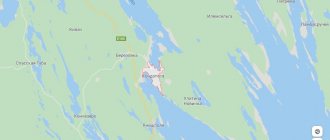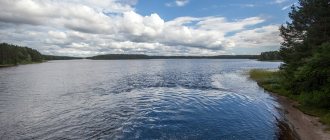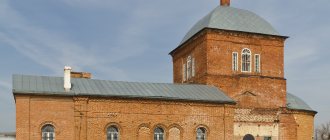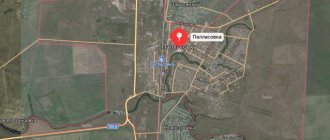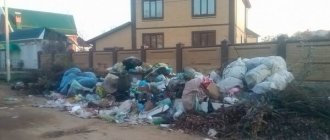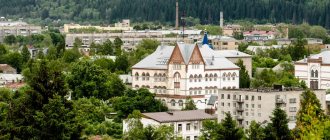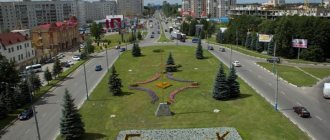- October 12, 2018
- Directions
- Nadezhda Kurchenok
Descriptions of the natural places of Karelia can be found both in paintings and in works of fiction. Having been here once, it is simply impossible to forget it. But the question may arise: is Karelia Russia or not? The republic is part of the Northwestern Federal District of the Russian Federation and borders Finland.
Karelia - where is it?
The subject of the Russian Federation was formed as the Karelian Labor Commune in 1920. But already in 1923 Karelia acquired the status of a republic. In addition to the state (Russian) language, local residents communicate in Vepsian, Finnish and Karelian.
The Republic of Karelia (the country of Russia) is located in the Northern part of Europe. In the northeast it is washed by the White Sea. The area is characterized by hilly plain terrain, which turns into highlands in the west. The highest point is Mount Nuorunen in the northwest. Its height is 576.7 m. The total area of Karelia is 180,520 km².
Marcipal waters
Interestingly, Peter the Great founded a resort here called “Marcipal Waters”. This establishment is located near Petrazovodsk.
Mostly people with heart problems come here. The positive results of treatment and prevention of diseases are very well influenced by the environment and nature of Karelia .
It is very calm and quiet here. It is not surprising that in such a peaceful environment, the treatment process proceeds profitably and even with unforgettable pleasure.
Many patients of the sanatorium speak positively about their stay at Marcipal Waters.
At the first opportunity, they try to return here again, and also actively recommend this place to their friends who, like themselves, want to find a good place for relaxation and treatment.
Rivers and lakes
The largest rivers in Karelia are the Chirko-Kem, Unga, Onda, Kem and Vodla. There are also beautiful waterfalls on the territory of the republic, for example, Vyg and Kivach. In total, there are about 27 thousand rivers and about 60 thousand lakes in Karelia. By the way, Onega and Ladoga are the largest in Europe. Other large lakes include Vygozero, Topozero, Syamozero, Pyaozero and Nyuk.
City infrastructure
There are industrial enterprises in the city. Here they process metal rocks, build cars and machine tools. For quite reasonable reasons, the woodworking industry and, as a result of this activity, the printing industry are well established.
Petrozavodsk can be reached by all existing means of transport. There are many road connections with other regions of the country.
A railway track runs through the city. Trains follow the following route - Murmansk-St. Petersburg - Moscow and back. You can also get from Finland and in the opposite direction by plane of Finnair airline.
It is believed that Petrozavodsk is a European city . Various conferences and large seminars are regularly held here. Citizens are often invited to exhibitions and fairs, where many foreign products presented by famous brands are present.
Flora
There are 63 species of mammals living in Karelia. Some of them, for example, the brown long-eared bat, the flying squirrel and the Ladoga ringed seal, are listed in the Red Book. Canadian and European beavers live here. “Non-native” inhabitants: a raccoon dog, which was brought from the Far East; American mink from North America. Here you can also meet a wolf, badger, lynx, bear, roe deer and wild boar.
In addition to animals, there are 285 species of birds in the republic (36 of them are listed in the Red Book). The most commonly seen birds are gulls, ducks, owls, hawks, partridges and hazel grouse.
Kivach and Karelian birch
At a distance of 60 kilometers from the city there is the Kivach sanatorium, as well as the famous waterfall and reserve of the same name. Many relict trees grow here, including the world-famous Karelian birch . This tree is famous for the fact that nodules (thickenings) are formed on its trunk in the form of patterns and different textures.
It is curious that the age of this tree is calculated not by the rings that can be found on the cut of all other trees, but by the patterns on the bark. Karelian birch wood makes very beautiful products because it has a variety of shades of colors, such as dark brown inclusions on a light yellow background.
In ancient times, artistic products were made from birch - bowls, goblets, bowls, spoons, boxes, toys and more. In some cases, it was even allowed to use Karelian birch wood as payment for services or the purchase of an item.
In literary works, the Karelian birch was first mentioned in 1766 by a certain expert on Russian forests, Mr. Fokel, when he described the Karelian forests. And the architect Stasov became almost the first pioneer in the field of using the phrase “furniture from Karelian birch.”
Nevertheless, Karelian birch received its official name in 1857 in the notes of the Russian scientist Merklin.
Near Petrozavodsk there is the island of Kizhi, or, as it is commonly called, Kizha. Having visited this island, you will be able to admire the famous wooden architectural monuments to your heart's content. You can get to Kizhi from the Onega embankment in Petrozavodsk.
Fauna
In the south of Karelia spruce and pine forests predominate. Closer to the north, only pine trees are found. It is worth noting that many different berries grow in the republic. For example, in the south these are raspberries, cranberries, blueberries, blueberries and lingonberries, and in the north – currants and strawberries.
To protect nature, two reserves have been created - Kostomuksha and Kivach. Scientific tourism is carried out in the protected area, and natural museums and ecological routes have been created. In addition to nature reserves, three parks have been established in the republic:
- Kalevalsky;
- Paanajärvi;
- Vodlozersky.
Much attention is paid to the state forest fund. One of the richest republics of the Russian Federation in this regard is Karelia, where forest occupies about 85% of the total territory. In total, there are 17 forest districts in the republic.
Petrozavodsk
The capital of Karelia is Petrozavodsk. We'll talk about it below. The largest tourist settlements are Medvezhyegorsk, Pudozh, Kondopoga, Sortavala and other cities. Karelia is inhabited by about 700,000 inhabitants.
Petrozavodsk is the main city of Karelia . It is not surprising that all the administrative centers of government of the republic are located in it. There are a lot of scientific centers here that are engaged in research and development, conduct seminars and conferences, which attract not only local scientists and candidates of science, but also representatives of various research centers and institutes from all over Russia.
It's no secret that tourist trips and, in general, holidays in Karelia for the vast majority of visitors begin in Petrozavodsk, because almost all roads from Russia lead here. Accordingly, from here you can go in any direction in Karelia.
Petrozavodsk is also rightfully the educational center of the republic. Two universities and one conservatory are located here and successfully carry out educational activities. These educational institutions have produced many talented young specialists who have found themselves in various fields of activity not only in Karelia, but throughout Russia.
More than 40,000 people study in secondary educational institutions, of which there are 16 in the capital, as well as in 49 general educational institutions (schools, gymnasiums, lyceums).
Production
It is not difficult to guess that the basis of the regional economy is the forest industry, wood processing enterprises, engineering and metallurgical plants, as well as agriculture. The Republic of Karelia has developed the production of iron ore pellets.
About a quarter of the production of iron ore pellets in the Russian Federation comes from this region. A fifth of paper production also occurs in Karelia, 12% of marketable pulp, more than half of Russian river trout is grown in this amazing republic.
Segerzhsky Pulp and Paper Mill
One of the most developed and largest enterprises is the Segerzh Pulp and Paper Mill. It produces a huge amount of paper industry. Namely: paper packaging bags. These products are popular in many countries around the world.
One of the most modern iron ore mining enterprises is located in Karelia. Ore is mined from the Kastamuzh and Karpan deposits. Karelian pellet is part of a large mining industry.
Employees of the Onega Shipyard work to meet the needs of the Russian seaport. The manufactured products serve the country's waterways. In 2015, close cooperation between the Onega Shipyard and Dutch partners began.
Petrozavodskmash
Petrozavodskmash is the only plant in the country that is engaged in mass production of large castings. On the basis of this enterprise, a competence center for world-class foundry production is being created. Petrozavodskmash is engaged in the production of equipment for the development of nuclear energy in the CIS countries and India.
Engineering is busy producing firefighting robots for the countries of the former USSR. These robots are also used in factories in Asia.
Thanks to the employees of the Varyag JSC enterprise, the maritime culture of Russia is being revived. Wooden ships are built there, and some models of sailing ships are reproduced. More than 30 sailing ships have been built here over the past two decades.
CJSC "Varyag"
In Karelia there is a deposit of an amazing mineral - shulgite. It is used to make souvenirs, water filters, and radio protection devices.
Karelskaya produces exercise equipment, including for the disabled. It is surprising that these simulators are installed on many street areas in foreign countries.
The products of the Yarmarka trading house are famous for their environmentally friendly food products. The food products are of high quality and do not contain preservatives. Therefore, products are supplied to Norway, Finland, China and the United Arab Emirates.
Karelia is one of three regions that occupy a leading position in the production of dairy products. , occupies a leading position in the European market for the production of frozen products.
Every year the company processes and sells more than 8 tons of wild berries. The products sell well in Austria, Belgium, Estonia, Sweden, Finland, China and Japan. The berries are also used to produce cosmetics, skin care and hygiene products.
Municipal districts and urban districts[ | ]
| № | Name | Flag | Coat of arms | Population, people (2021)[7] | Area, km² | Population density, people/km² | Urban population, people | Rural population, people | Administrative center | Urban settlements | Number | Number |
| 1e-06 | Municipal districts | |||||||||||
| 1 | Belomorsky | ↘15 151 | 12 797 | 1,18 | 9036 | 6115 | Belomorsk city | 1 | 3 | |||
| 2 | Kalevala national Karelian. Kalevalan kanzalline piiri | ↘6489 | 13 316 | 0,49 | 3784 | 2705 | town Kalevala | 1 | 3 | |||
| 3 | Kemsky | ↘13 961 | 8029 | 1,74 | 10 463 | 3498 | Kem city | 1 | 3 | |||
| 4 | Kondopoga | ↘34 521 | 5940 | 5,81 | 28 744 | 5777 | Kondopoga city | 1 | 7 | |||
| 5 | Lakhdenpokhsky | ↘12 298 | 2180 | 5,64 | 6890 | 5408 | city of Lakhdenpokhya | 1 | 4 | |||
| 6 | Loukhsky | ↘10 619 | 22 551 | 0,47 | 7463 | 3156 | Loukhi village | Chupa, Pyaozersky | 3 | 4 | ||
| 7 | Medvezhyegorsk Karelian. Karhumäen piiri | ↘26 475 | 13 694 | 1,93 | 19 745 | 6730 | city of Medvezhyegorsk | Pindushi, Povenets | 3 | 6 | ||
| 8 | Muezersky | ↘9241 | 17 660 | 0,52 | 2673 | 6568 | village Muezersky | 1 | 7 | |||
| 9 | Olonets national Karelian. Anuksen kanzalline piiri | ↘19 802 | 3988 | 4,97 | 7942 | 11 860 | Olonets town | 1 | 8 | |||
| 10 | Pitkyaranta | ↘16 895 | 2254 | 7,5 | 10 048 | 6847 | Pitkyaranta city | 1 | 4 | |||
| 11 | Prionezhsky | ↘21 931 | 4475 | 4,9 | 0 | 21 931 | Petrozavodsk city | — | 13 | |||
| 12 | Pryazha national Karelian. Priäžän kanzalline piiri | ↘14 049 | 6395 | 2,2 | 3438 | 10 611 | village Yarn | 1 | 6 | |||
| 13 | Pudozh Karelian. Puudožin piiri | ↘16 694 | 12 745 | 1,31 | 8513 | 8181 | Pudozh city | 1 | 7 | |||
| 14 | Segezhsky | ↘34 761 | 10 723 | 3,24 | 32 721 | 2040 | city of Segezha | Nadvoitsy | 2 | 4 | ||
| 15 | Sortavala | ↘30 366 | 2189 | 13,87 | 23 989 | 6377 | Sortavala city | Vyartsilya, Helyulya | 2 | 2 | ||
| 16 | Suoyarvsky | ↘14 834 | 13 738 | 1,08 | 8607 | 6544 | Suoyarvi town | 1 | 4 | |||
| 16.000002 | Urban districts | |||||||||||
| 17 | Petrozavodsk Karelian. Petroskoin linnupiiri, fin. Petroskoin kaupunkipiiri | ↘280 711 | 113 | 2484.17 | 280711 | 0 | Petrozavodsk city | |||||
| 18 | Kostomuksha Karelian. Kostamuksen linnupiiri | ↗30 273 | 4046[8] | 7.48 | 29778 | 495 | Kostomuksha city |
Content
- 1 Administrative-territorial structure
- 2 Municipal structure
- 3 Municipal districts and urban districts
- 4 Rural and urban settlements 4.1 Belomorsky district
- 4.2 Kalevala national region
- 4.3 Kemsky district
- 4.4 Kondopoga district
- 4.5 Lakhdenpokh district
- 4.6 Loukhi district
- 4.7 Medvezhyegorsky district
- 4.8 Muezersky district
- 4.9 Olonetsky national district
- 4.10 Pitkyaranta district
- 4.11 Prionezhsky district
- 4.12 Pryazhinsky national district
- 4.13 Pudozhsky district
- 4.14 Segezha district
- 4.15 Sortavala district
- 4.16 Suoyarvi district
Rural and urban settlements[ | ]
Municipalities of Karelia as of 2013
Below is a list of urban and rural settlements distributed among municipal districts.
Urban settlements are highlighted in bold
font.
Belomorsky district[ | ]
- Belomorskoe urban settlement
- Letnerechenskoe rural settlement
- Sosnovets rural settlement
- Sumposad rural settlement
Kalevala national region[ | ]
- Kalevala urban settlement
- Borovskoe rural settlement
- Luusalma rural settlement
- Yushkozerskoye rural settlement
Kemsky district[ | ]
- Kem urban settlement
- Krivoporozhskoe rural settlement
- Kuzemskoe rural settlement
- Rabocheostrovskoe rural settlement
Kondopoga district[ | ]
- Kondopoga urban settlement
- Girvas rural settlement
- Kedrozerskoe rural settlement
- Konchezerskoe rural settlement
- Kyappeselga rural settlement
- Novinskoye rural settlement
- Petrovskoye rural settlement
- Yanishpolskoe rural settlement
By Law of the Republic of Karelia dated April 27, 2021 No. 2230-ZRK[9], the Kurortnoye and Petrovskoye rural settlements were transformed, by merging them, into the newly formed municipal entity Petrovskoye rural settlement with the administrative center in the village of Spasskaya Guba.
Lakhdenpokh district[ | ]
- Lakhdenpokh urban settlement
- Kurkiyoki rural settlement
- Miinal rural settlement
- Khiitolskoye rural settlement
- Elisenvaara rural settlement
Loukhi district[ | ]
- Loukhskoe urban settlement
- Pyaozerskoe urban settlement
- Chupa urban settlement
- Ambarnsky rural settlement
- Kestenga rural settlement
- Malinovarakki rural settlement
- Plotinskoe rural settlement
Medvezhyegorsky district[ | ]
- Medvezhyegorsk urban settlement
- Pindush urban settlement
- Povenets urban settlement
- Velikogubskoe rural settlement
- Padanskoe rural settlement
- Tolvuiskoe rural settlement
- Chebinskoe rural settlement
- Chelmuzhskoe rural settlement
- Shunga rural settlement
Muezersky district[ | ]
- Muezerskoe urban settlement
- Volomskoe rural settlement
- Ledmozerskoe rural settlement
- Lenderskoe rural settlement
- Peningskoe rural settlement
- Rebolskoe rural settlement
- Rugozerskoye rural settlement
- Sukkozero rural settlement
Olonets national district[ | ]
- Olonets urban settlement
- Vidlitskoe rural settlement
- Ilyinskoe rural settlement
- Kover rural settlement
- Kotkozerskoe rural settlement
- Kuitezhskoe rural settlement
- Megreg rural settlement
- Mikhailovskoye rural settlement
- Tuksinsky rural settlement
Pitkyaranta district[ | ]
- Pitkyaranta urban settlement
- Impilakhtinskoe rural settlement
- Lyaskelskoye rural settlement
- Salminskoe rural settlement
- Kharlu rural settlement
Prionezhsky district[ | ]
- Ladva-Vetkinskoye rural settlement
- Ladvinskoe rural settlement
- Garrison rural settlement
- Wooden rural settlement
- Derevyankskoe rural settlement
- Zaozerskoe rural settlement
- Reclamation rural settlement
- Novovilgovskoe rural settlement
- Pai rural settlement
- Ryboretskoye Vepsian rural settlement
- Sheltozersk Vepsian rural settlement
- Shokshinskoye Vepsian rural settlement
- Shuya rural settlement
Pryazhinsky national district[ | ]
- Pryazhinskoye urban settlement
- Vedlozerskoye rural settlement
- Kroshnozerskoye rural settlement
- Matrosskoe rural settlement
- Svyatozerskoye rural settlement
- Chalny rural settlement
- Essoyl rural settlement
Pudozhsky district[ | ]
- Pudozh urban settlement
- Avdeevskoe rural settlement
- Krasnoborskoe rural settlement
- Krivetskoe rural settlement
- Kubovskoe rural settlement
- Kuganavolokskoe rural settlement
- Pyalma rural settlement
- Shalskoe rural settlement
Segezha district[ | ]
- Segezha urban settlement
- Nadvoitsky urban settlement
- Valdai rural settlement
- Idel rural settlement
- Popovporozhskoe rural settlement
- Chernoporozhye rural settlement
Sortavala district[ | ]
- Vyartsila urban settlement
- Sortavala urban settlement
- Kaalam rural settlement
- Khaapalampinskoe rural settlement
By Law of the Republic of Karelia dated July 3, 2021 No. 2483-ZRK[6], the Khelyulskoye and Sortavala urban settlements were transformed, by merging them, into the newly formed municipal formation of the Sortavala urban settlement with the administrative center in the city of Sortavala.
Suoyarvi district[ | ]
- Suoyarvi urban settlement
- Veshkel rural settlement
- Loymolskoe rural settlement
- Naistenjärvi rural settlement
- Porosozerskoe rural settlement
